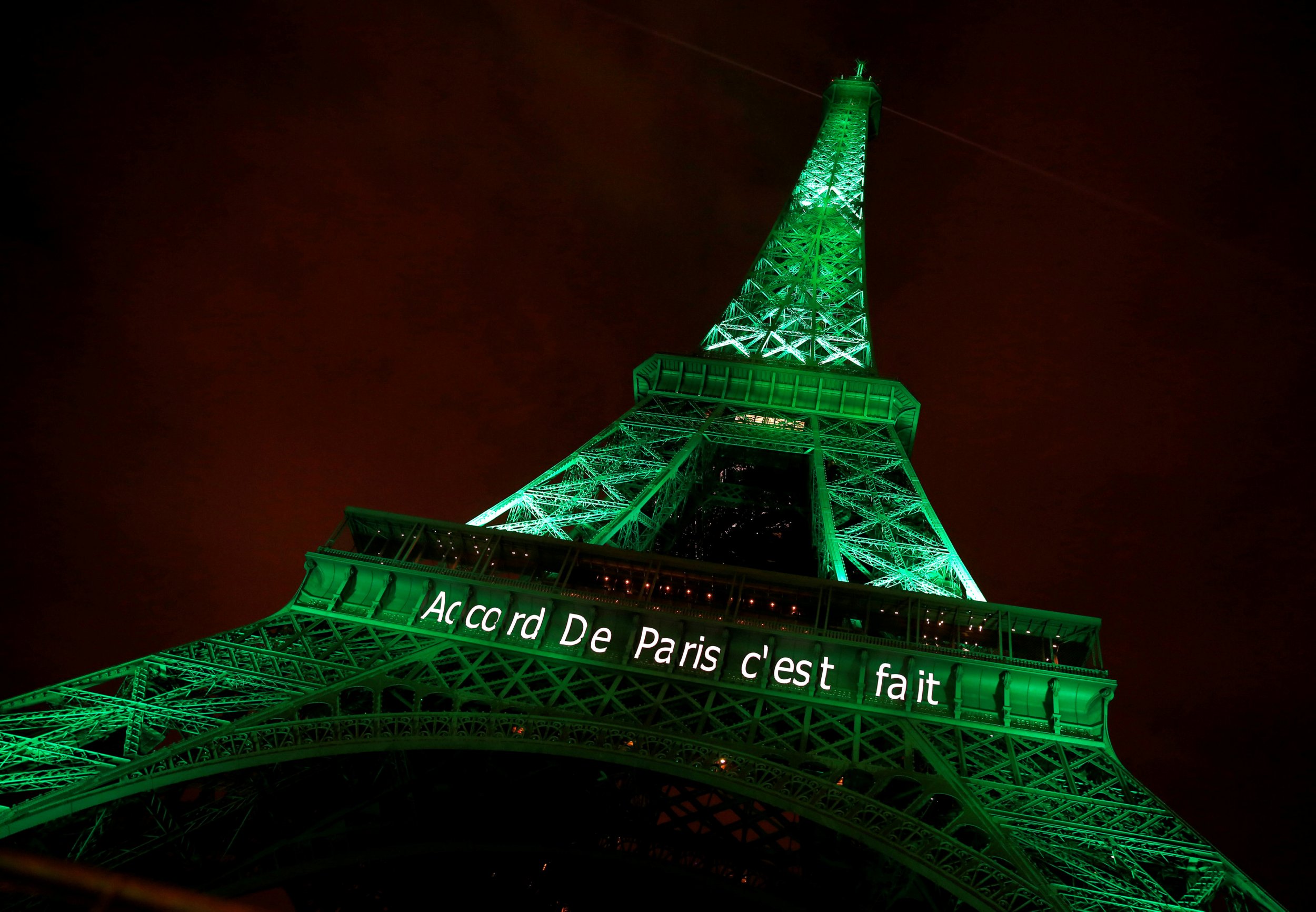
"So we're getting out."
With those words, President Donald Trump on Thursday announced the U.S. withdrawal from the Paris climate accord, a move that dramatically reverses America's position on reducing global warming and ends its leadership on the issue.
The announcement was not unexpected, nor was Trump's rationale that the deal was unfair to the U.S. and gave good terms to nations like India and China. The accord, which has been signed by every nation save Syria and Nicaragua, is nonbinding.
"In order to fulfill my solemn duty to protect America and its citizens, we will withdraw from the Paris climate accord but begin negotiations to re-enter the Paris accord or an entirely new accord.... So we're getting out, but we'll start to negotiate to make a deal that's fair," said the president from the Rose Garden. "And if we can, that's great, and if we can't, that's fine."
Trump's decision came after a battle among his advisers about staying in the accord. Withdrawal represents a victory for Steve Bannon, his nationalist adviser, and a loss for National Economic Council Director Gary Cohn and others, including the president's daughter and senior adviser, Ivanka Trump.
Trump's vow to negotiate a new deal is unrealistic. The rest of the world has no incentive to regather to negotiate a new deal to replace the one that was so hard to create in the first place. Other nations have already said they have no interest in reopening the agreement. Indeed, Trump's acknowledgement that it may not happen seems like a tacit admission that it won't.
This position is different from Trump's stand on the North American Free Trade Agreement. During the 2016 campaign, he vowed to withdraw from that treaty with Canada and Mexico. But now that he's in office, he has said the U.S. will stay in the accord and try to negotiate better terms. That is precisely what President Barack Obama promised in 2008, although when the Democrat took office in 2009, he never sought to renegotiate NAFTA.
Had Trump kept the U.S. in the Paris accord, he might have had more leverage in future international climate negotiations. Now the U.S. has gone from a leader on the topic to one that has broken its promises—not the most promising start.
Trump hailed his own move as "a reassertion of American sovereignty," but the nation's independence was never at issue. The agreement had no enforcement mechanism and was voluntary—more a set of goals rather than an ironclad contract. Under Trump, the U.S. remains part of many agreements that do much more to encroach on U.S. sovereignty, such as NATO's Article V, which obligates the U.S. to respond to an attack on any member nation. That's the kind of commitment that chips away at the Congress's prerogative to declare war much more than this agreement affects our sovereignty.
Uncommon Knowledge
Newsweek is committed to challenging conventional wisdom and finding connections in the search for common ground.
Newsweek is committed to challenging conventional wisdom and finding connections in the search for common ground.
About the writer
Matthew Cooper has worked for some of America's most prestigious magazines including Time, The New Republic, National Journal, U.S. News ... Read more





